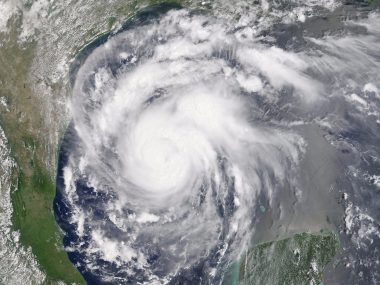The university is offering a variety of ways in the coming days and weeks for students, faculty and staff to assist those devastated by the catastrophic hurricane that struck Texas on Friday night.
As the communities and residents in southeast Texas and the Gulf Coast region begin the long process of recovering from the devastation from Hurricane Harvey, Elon is offering its support to students, faculty and staff impacted by the storm and guidance on how to best support the relief effort.

Within the Elon University community, nearly 80 students hail from Texas, including 22 in the Houston area and another 18 in areas impacted by the storm. The university reached out to those students on Saturday to offer assistance. Additionally, others at Elon may have friends and family who live in the affected region.
The university offers a range of resources for students, faculty and staff with concerns during this difficult time, with information about how to access those resources available here. Anyone needing assistance is encouraged to tap into these resources, which include comprehensive wellness services and counseling.
In the weeks and months to come, the Kernodle Center for Service Learning and Community Engagement will provide guidance for how Elon can help affected community and individuals. In the short term, monetary donations offer the most effective avenue to support disaster relief efforts since those funds can be directed to the areas of greatest need.
Voluntary Organizations Active in Disaster, a national group, offers a list of agencies that will be involved in relief and recovery efforts, including donation links for those groups, available here – https://www.nvoad.org/voad-members/national-members/. Unfortunately, these types of disasters also draw scammers who use emails and phone calls to impersonate disaster relief organizations, so the best way to donate is to visit an organization’s website directly rather than clicking on links or attachments from a questionable email.


